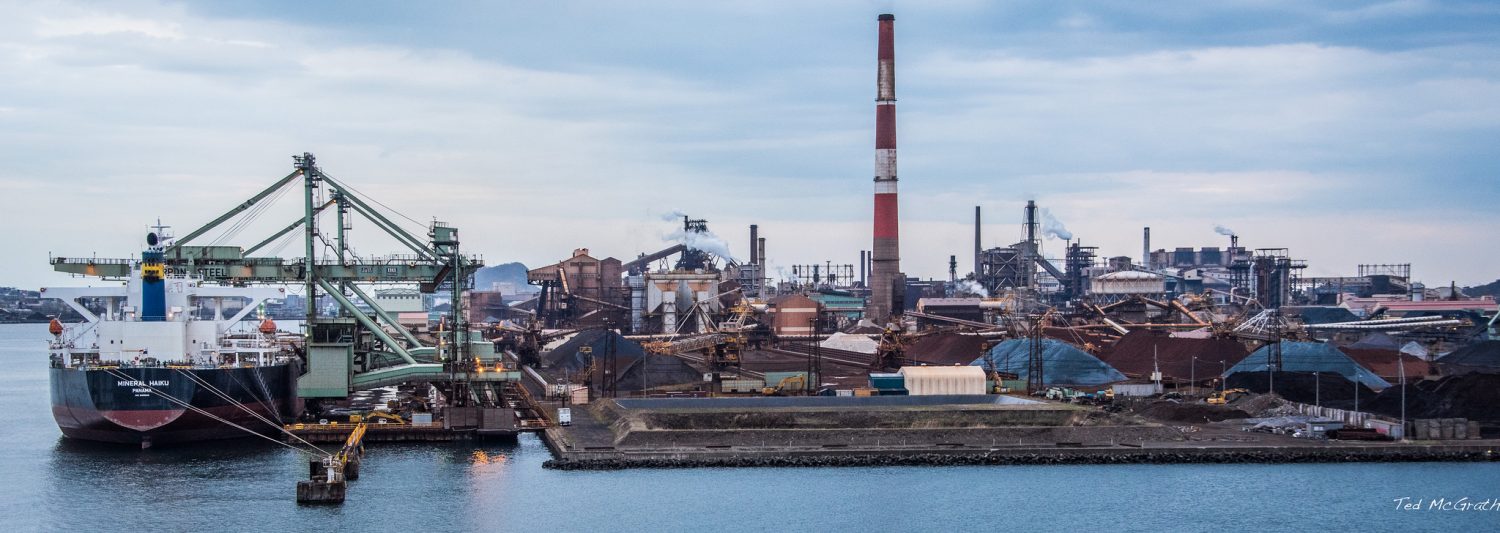
About
Port reception facilities
IMO develops and maintains a port reception facility database (PRFD) as a module of the IMO Global Integrated Shipping Information System (GISIS) . The PRFD was designed to allow IMO Member States to update the Database via a log-in password, and to allow the public to access all the information in the Database on a view-only basis. Click here to get access to GISIS.
INTERCARGO Database of port reception facilities
A Database on Ship-Terminal Interface Issues is updated a few times annually, based on the Reports from masters of bulk carriers, with details at the webpage link.
MARPOL Annex V
The amendments to MARPOL Annex V entered into force on 1 Mar 2018, which require mandatory declaration of shipper: “Solid bulk cargoes …, shall be classified in accordance with appendix I of this Annex, and declared by the shipper as to whether or not they are harmful to the marine environment”.
Under such amendments to MARPOL Annex V, the discharge of residues of a cargo that is declared “harmful to the marine environment” by the shipper (i.e. HME cargo residues) and the cargo hold washings are strictly prohibited. There is only one option – to discharge them to port reception facilities (PRFs) .
As introducing the electronic record book, the resolution MEPC.314(74), as adopted on 17 May 2019, contains the requirements as follows:
- “The Garbage Record Book, whether as a part of the ship’s official logbook, or as an electronic record book which shall be approved by the Administration taking into account the Guidelines developed by the Organization, or otherwise, shall be in the form specified in appendix II to this Annex:”.
IMO also adopted Guidelines for the use of Electronic Record Books under MARPOL (resolution MEPC.312(74)) to guide the electronic record book practice. As a relevant reference, if a shipowner decides to use an electronic record book to record operational logs, instead of a hard copy record book, it may be useful to refer to an MEPC resolution MEPC.372(80) as adopted on 7 July 2023.
Compliance with MARPOL Annex V
The effectiveness of ships to comply with the discharge requirements of MARPOL depends largely upon the availability of adequate port reception facilities, especially within special areas. MARPOL obliges Governments to ensure the provision of adequate reception facilities at ports and terminals for the reception of garbage without causing undue delay to ships, and according to the needs of the ships using them.
An overview of the revised MARPOL Annex V discharge provisions can be accessed here. and link. Exceptions with respect to the safety of a ship and those on board and accidental loss are contained in regulation 7 of Annex V.
Solid bulk cargoes shall be classified and declared by the shipper as to whether or not they are harmful to the marine environment, in accordance with the criteria set out in paragraph 3.2 of the 2012 Guidelines for the Implementation of MARPOL Annex V.
Click here for a simplified overview of the regulations regarding the discharge of cargo residues under the revised Annex V.
Cargo residues
Under MARPOL Annex V, cargo residues are defined as the remnants of any cargo which remain on deck or in holds following loading or unloading. They include loading and unloading excess or spillage, whether in wet or dry condition or entrained in wash water, but do not include cargo dust remaining on deck after sweeping or dust on the external surfaces of the ship (regulation 1.2 of the revised Annex V). In addition to this definition, the revised Annex V also stipulates that only those cargo residues that cannot be recovered using commonly available methods for unloading shall be considered for discharge.
Special Areas under MARPOL
Click here to refer to Special Areas under MARPOL
Updates
Updates
About
Issue Summary
INTERCARGO supports accurate measurement of quality, the promotion of quality and the eradication of sub-standard shipping. INTERCARGO works with PSC interests to support :-
- Harmonised standards and training of inspectors
- Consistent interpretation on what constitutes clear grounds for inspection
- The raising of standards of all MoUs to those of the global best.
Please click here and use the INTERCARGO Reporting Form to report problems and concerns.
INTERCARGO Policy
The function of port State control is to ensure that shipping conforms to the regulatory requirements of internationally agreed Conventions. Of the 9 Memorandum of Understanding (MoU) areas plus the US Coast Guard, almost all have publicly accessible targeting matrices, selecting vessels based on empirically defined risks associated with owners past performance, vessel type, flag, age, Classification Society etc. In the overwhelming majority of cases, targeting and inspection is professionally undertaken leading to a safer and more environmentally friendly Industry.
INTERCARGO fully supports the enforcement of regulation through the PSC process. By making detailed information available to the PSC authorities and all other interested parties through our annual “Benchmarking” Report, INTERCARGO provides a transparent and statistically verifiable statement on the performance of various stakeholders including ships entered by INTERCARGO members, thereby encouraging continuous improvement. The strategic aim of INTERCARGO is therefore to “support the MoU policies of rewarding (through fewer inspections) the owners and operators of vessels that perform highly during PSC inspections and to target/improve the below average stakeholders”.
Updates
About
Traditionally linked to the Criminalisation of Seafarers after accidental pollution, this issue now encompasses other areas where shipowners and seafarers can be adversely affected such as “Places of Refuge”, Amici Curiae measures, other collective legal interventions, Port State Control (PSC) control corruption and national anti-bribery laws.
Firstly considering “Accidental Pollution”, responsible shipowners work very hard to meet all applicable regulations such as IMO’s MARPOL Convention. Deliberate pollution is indefensible but it should be noted that pollution from ships is in long-term decline as the following figures from Industry body, ITOPF (www.itopf.co.uk), confirms although these figures refer to tankers and similar vessels only
|
Years |
Quantity (tonnes) |
|
1970-1979 |
3,195,000 |
|
1980-1989 |
1,174,000 |
|
1990-1999 |
1,133,000 |
|
2000-2009 |
213,000 |
|
2010-2013 |
22,000 |
Criminalisation of seafarers is viewed as one of the four principle Round Table issues kept under regular review by the associations.
Historically, INTERCARGO has always voiced its opposition to the criminalisation of seafarers for Accidental Pollution, including adding its name in 2010 to a Round Table paper in support of the “Hebei Spirit” seafarers. It is iniquitous that seafarers can be arrested as a precautionary measure, contrary to natural justice. Shipping Associations such as INTERCARGO urge all Governments to implement the measures contained in the ILO-IMO Guidelines on the Fair Treatment of Seafarers in the event of a Maritime Accident” (Resolution LEG 3 (91) adopted on 27 April 2006).
In terms of its support for IMO and the cause of consistent, global regulations, INTERCARGO added its support in 2009 to a group of concerned shipping interests seeking clarification of intent of the 2005 European Union Ship Source Pollution Directive. This then led to a ruling made by the European Court of Justice concerning the overlap between IMO’s MARPOL Convention and regional or national regulations implicit in the EU Directive, demonstrating that owners and their associations can leverage support by acting together in support of their seafarers.
Updates


